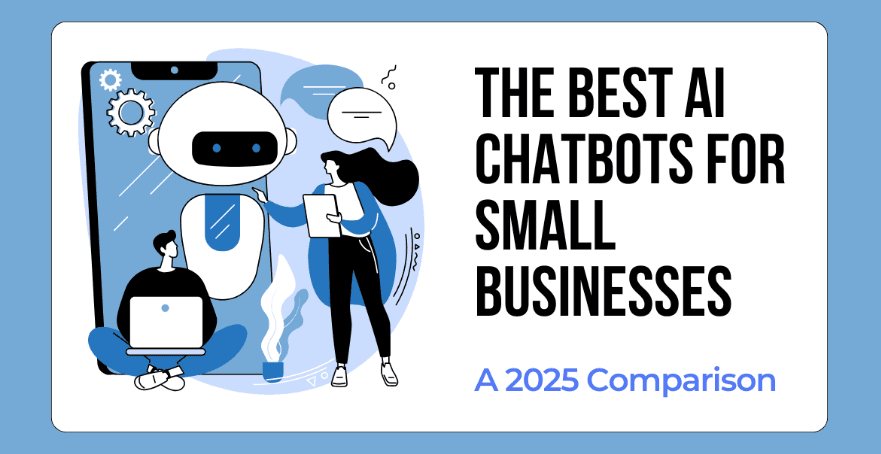Boosting E-commerce Sales with AI Chatbots: A Game Changer for Retailers
Oct 18, 2024
Introduction
In the fast-paced world of e-commerce, staying ahead of the competition requires more than just a strong online presence. Consumers today expect immediate responses, personalized shopping experiences, and seamless customer service. With the rise of digital technology, businesses must adapt to meet these evolving demands. Artificial Intelligence (AI) chatbots have emerged as a game changer for online retailers, transforming the way businesses operate and interact with customers. By leveraging AI-powered chatbots, e-commerce platforms can enhance customer interactions, boost sales, and improve overall efficiency. This article explores how AI chatbots significantly impact e-commerce sales and why they are indispensable tools for online retailers.
Table of Contents
Understanding AI Chatbots
The Rise of AI in E-commerce
Enhancing Customer Support with 24/7 Availability
Personalizing the Shopping Experience
Streamlining the Sales Process
Handling Multiple Queries Simultaneously
Boosting Engagement through Conversational Marketing
Reducing Operational Costs
Enhancing Customer Retention
Gaining Valuable Data Insights
Overcoming Language Barriers
Implementing AI Chatbots with AI Chatbot Hub
The Future of AI Chatbots in E-commerce
Conclusion
References
Understanding AI Chatbots
AI chatbots are computer programs that utilize artificial intelligence to simulate human-like conversations with users. They are integrated into websites, mobile applications, and social media platforms to communicate with customers, answer queries, and guide them through various processes. Unlike traditional rule-based bots, AI chatbots employ machine learning, natural language processing (NLP), and predictive analytics to understand customer intent and provide accurate, context-aware responses.
These advanced chatbots can learn from interactions, improving over time to offer more personalized and efficient support. By analyzing language patterns and user behavior, AI chatbots can anticipate needs and provide proactive assistance, making them a powerful tool for customer engagement.
The Rise of AI in E-commerce
The integration of AI technologies in e-commerce is reshaping the online shopping landscape. With the exponential growth of online retail, businesses face the challenge of managing vast amounts of data and customer interactions. AI provides solutions that enhance efficiency and customer satisfaction.
According to a report by Business Insider Intelligence, by 2024, consumer retail spending via chatbots worldwide will reach $142 billion, up from just $2.8 billion in 2019[^1]. This significant growth highlights the increasing reliance on AI chatbots to meet customer demands. Online retailers are leveraging AI to handle higher volumes of customer inquiries, offer personalized shopping experiences, and provide support around the clock.
Enhancing Customer Support with 24/7 Availability
One of the most significant advantages of AI chatbots is their ability to provide 24/7 customer support. In a global marketplace, customers shop across different time zones, and immediate assistance can be a key factor in making a sale. AI chatbots ensure that customer queries are addressed promptly, regardless of the time of day.
For instance, a customer browsing an online store late at night may need information about product specifications or shipping options. An AI chatbot can instantly provide the necessary details, improving the customer experience and increasing the likelihood of completing a purchase. This constant availability not only enhances customer satisfaction but also builds trust in the brand.
Personalizing the Shopping Experience
Personalization is a critical component of modern e-commerce. AI chatbots help create personalized shopping experiences by analyzing customer behavior, preferences, and past purchases. They can recommend products that align with the customer's interests, increasing the chances of a sale.
For example, if a customer frequently purchases athletic wear, the chatbot can suggest new arrivals in that category or notify them about upcoming sales. This level of personalization goes beyond what human representatives can typically provide, especially at scale. By delivering tailored recommendations, AI chatbots enhance customer engagement and foster brand loyalty.
Streamlining the Sales Process
AI chatbots streamline the sales process by guiding customers through their buying journey. They can assist with product selection, answer detailed questions, and help with checkout procedures. By simplifying each step, chatbots reduce friction points that often lead to cart abandonment.
Imagine a customer who is unsure about which laptop model suits their needs. An AI chatbot can ask specific questions about the customer's requirements and suggest suitable options. Additionally, it can facilitate the checkout process by providing information on payment methods and shipping, ensuring a smooth transaction.
Handling Multiple Queries Simultaneously
Unlike human agents, AI chatbots can handle multiple customer inquiries simultaneously without compromising response time or quality. This scalability is particularly beneficial during peak shopping periods, such as holiday seasons or promotional events, when customer service demand surges.
During events like Black Friday, thousands of customers may seek assistance at once. AI chatbots ensure that every inquiry receives immediate attention, eliminating long wait times and enhancing the overall shopping experience. This capability allows businesses to maintain high customer service standards even under heavy traffic.
Boosting Engagement through Conversational Marketing
AI chatbots excel in conversational marketing, where real-time, personalized interactions drive customer engagement. By initiating conversations with website visitors, chatbots can identify customer needs and offer relevant suggestions.
For instance, when a visitor lands on a product page, the chatbot might say, "Welcome! Are you looking for anything specific today?" Such interactions encourage customers to engage with the chatbot, providing opportunities to recommend products or promotions. This proactive approach not only increases engagement but also guides customers toward making a purchase.
Reducing Operational Costs
Implementing AI chatbots can lead to significant cost savings for e-commerce businesses. Hiring, training, and maintaining a large customer service team is expensive. AI chatbots handle a substantial portion of customer interactions, reducing the need for extensive human support.
By automating tasks such as answering frequently asked questions, providing product information, and processing returns, businesses can allocate resources more efficiently. This reduction in operational costs does not come at the expense of customer service quality; in fact, it often enhances it by providing faster response times and consistent information.
Enhancing Customer Retention
Customer retention is vital for sustained business growth, and AI chatbots play a crucial role in ensuring repeat business. Through personalized follow-ups, tailored recommendations, and timely support, chatbots keep customers engaged with the brand.
For example, after a purchase, an AI chatbot can send a thank-you message, request feedback, or suggest complementary products. By maintaining communication, businesses can nurture relationships, address any post-purchase concerns promptly, and increase the likelihood of future sales.
Gaining Valuable Data Insights
AI chatbots provide businesses with valuable insights into customer behavior and preferences. By analyzing interactions, chatbots collect data that can inform marketing strategies, product development, and customer service improvements.
If a chatbot frequently receives questions about a particular product feature, this information can indicate a need for clearer product descriptions or highlight a popular selling point. Businesses can use these insights to refine their offerings and tailor their approaches to meet customer needs more effectively.
Overcoming Language Barriers
E-commerce operates on a global scale, and language can be a barrier to reaching international customers. AI chatbots equipped with multilingual capabilities can communicate with customers in their preferred language, enhancing accessibility.
By offering support in multiple languages, businesses can expand their market reach and provide a more inclusive shopping experience. This capability is especially important for companies aiming to establish a presence in diverse regions.
Implementing AI Chatbots with AI Chatbot Hub
While the benefits of AI chatbots are clear, implementing them can seem daunting, especially for businesses without extensive technical resources. This is where platforms like AI Chatbot Hub come into play. AI Chatbot Hub is a no-code AI agent building platform that enables businesses to create and deploy AI chatbots easily.
With AI Chatbot Hub, online retailers can:
Customize Chatbots: Design chatbots that reflect the brand's voice and style, ensuring a consistent customer experience.
Integrate Seamlessly: Deploy chatbots across websites, mobile apps, and social media platforms without complex coding.
Monitor Performance: Access analytics to track chatbot interactions, measure effectiveness, and identify areas for improvement.
Scale Effortlessly: Adjust the chatbot's capabilities as the business grows or customer needs evolve.
By leveraging AI Chatbot Hub, businesses can harness the power of AI chatbots without the need for specialized technical expertise, making this transformative technology accessible to companies of all sizes.
The Future of AI Chatbots in E-commerce
As AI technology continues to advance, AI chatbots are expected to become even more integral to e-commerce. Future developments may include:
Enhanced Personalization: Improved algorithms will enable chatbots to provide even more personalized experiences based on deeper data analysis.
Voice Integration: Incorporating voice recognition will allow chatbots to interact with customers through voice commands, aligning with the rise of voice-activated devices.
Emotion Recognition: Advanced AI may enable chatbots to recognize and respond to customer emotions, providing empathetic support.
Integration with Other AI Technologies: Combining chatbots with AI-driven inventory management or augmented reality can create a more immersive shopping experience.
Embracing these innovations will help online retailers stay competitive and meet the evolving expectations of consumers in the digital age.
Conclusion
In today's competitive e-commerce landscape, AI chatbots have emerged as a game changer for online retailers. By offering personalized shopping experiences, automating the sales process, and providing 24/7 customer support, chatbots significantly enhance customer satisfaction and boost sales. The cost-saving benefits, scalability, and ability to gather valuable insights make AI chatbots an indispensable tool for businesses looking to thrive.
Implementing AI chatbots has never been more accessible, thanks to platforms like AI Chatbot Hub. By utilizing a no-code solution, businesses can quickly deploy sophisticated chatbots, reaping the benefits without the hurdles of complex development.
As e-commerce continues to evolve, adopting AI chatbots is not just an option but a necessity. By staying ahead of technological advancements, online retailers can meet customer demands, outperform competitors, and secure long-term success.
Related articles

Customer Service
General
The Best AI Chatbots: A 2025 Comparison
Feb 11, 2025

General
What Is Prompt Engineering?
Oct 29, 2024

Customer Service
Top 3 Prompts for Customer Support AI Agents
Sep 8, 2024
